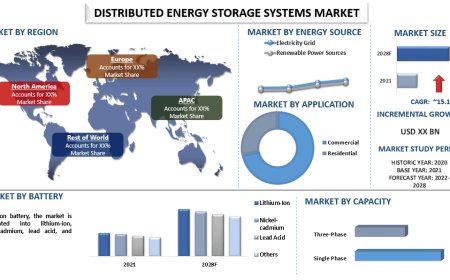What’s the Easiest Way to Qualify for an FHA Loan in Virginia?
Discover the simplest way to qualify for an FHA loan in Virginia, including credit score tips, documentation prep, and state-backed buyer assistance programs.

Why FHA Loans Are a Popular Choice for Virginia Buyers
For many Virginians, buying a home isnt just a goalits a milestone. But what if your credit score isnt perfect? What if your savings arent quite there yet for a conventional down payment? Thats where FHA loans come into play. Backed by the Federal Housing Administration, these loans are structured to help first-time buyers and those with modest financial profiles secure a home without high barriers to entry.
FHA loan credit score requirements Virginia lenders consider are more forgiving than those of conventional mortgages. With the right preparation, qualifying can be simpler than expected. But whats the path of least resistance? Lets walk through the easiest way to qualifywithout getting lost in the paperwork jungle.
Start by Knowing Your Credit Scoreand What Counts
The FHA doesnt demand sky-high scores. In fact:
-
580 or above qualifies you for the minimum 3.5% down payment
-
500 to 579 might still be accepted, but you'll need to put down 10%
-
Below 500? Not likely to qualify unless under exceptional circumstances
However, most Virginia lenders prefer a score of 620 to 640 or higher, even though 580 is technically the minimum. These preferences, called overlays, are added on top of federal guidelines for additional caution. That means the easiest qualification route is having a credit score of 640+, clean payment history, and low debt utilization.
Simplify Things with a Preapproval First
Getting preapproved is the smartest shortcut. Heres why:
-
You learn your exact credit score and whether it meets the threshold
-
You find out how much home you can afford
-
You save time (and possible rejection) when touring properties
-
You show sellers youre serious, which helps in competitive Virginia markets like Fairfax, Richmond, or Virginia Beach
Preapproval also allows the lender to assess your full financial picturecredit score, income, employment, debt, and assetsgiving you clear direction for next steps.
Gather the Essentials Early
FHA loans are forgiving, but they still require documentation. To make the process easier, have these ready upfront:
-
Last two years of W-2s or tax returns
-
Recent pay stubs or proof of consistent income
-
Bank statements for checking, savings, and retirement accounts
-
Government-issued ID and Social Security number
-
List of debts and monthly payments
In Virginias active housing markets, having your paperwork organized helps you move faster when a listing grabs your attention.
Tackle Credit Issues Before You Apply
If your scores hovering near the edge, there are quick fixes:
-
Pay down your credit cards to reduce utilization (under 30% is ideal)
-
Avoid opening new accounts until after youve been approved
-
Dispute credit report errorseven small mistakes can hurt
-
Pay bills on time, especially in the months leading up to your loan application
Virginia lenders appreciate transparency and progress. If they see you've taken steps to improve your financial profile, youre more likely to be approved.
Use a Low Down Payment to Your Advantage
One of the easiest ways to qualify for FHA financing is to take advantage of its low down payment requirementjust 3.5%, assuming your score is at least 580. That means:
-
On a $250,000 home in Roanoke, your down payment could be less than $9,000
-
With gift funds or down payment assistance, this number might be even lower
Virginia Housing (formerly VHDA) offers programs that pair with FHA loans to reduce the burden of upfront costs. Ask your lender about grants, second mortgages, or forgivable loans designed for first-time buyers.
Keep Your Debt-to-Income Ratio Lean
Your DTIhow much of your income goes toward debtplays a big role in FHA approvals. The easiest qualification path includes:
-
Keeping your DTI below 43%
-
Avoiding large purchases (like a new car) before applying
-
Paying off small loans or credit cards if possible
-
Increasing income through part-time work or freelancing (documented)
In high-cost counties like Loudoun or Arlington, where home prices exceed FHA loan limits, staying lean on debt may open doors to larger financing amounts.
Stick with Virginia-Friendly FHA Lenders
Choosing the right lender makes all the difference. You want someone who:
-
Specializes in FHA loans
-
Understands Virginias property markets
-
Offers lower overlays or flexible underwriting
-
Communicates clearly about the process
Local credit unions, regional banks, and brokers often provide personalized service and better understanding of state-specific programs.
Pick the Right Property for FHA Approval
Not every home qualifies for FHA financing. To make it easy:
-
Focus on primary residences (FHA doesnt finance vacation or investment homes)
-
Avoid fixer-uppers unless you plan to use an FHA 203(k) rehab loan
-
Choose homes that meet safety and livability standards
-
Avoid properties with unpermitted additions or structural issues
In places like Chesapeake or Fredericksburg, where inventory includes a mix of old and new homes, ask your agent which listings are FHA-friendly.
Apply During a Stable Financial Season
Try to apply:
-
After you've made a few months of on-time payments
-
When your credit score has just climbed
-
When your income and job history are steady
-
After youve reduced your monthly debt obligations
Virginias housing cycles tend to heat up in spring and fall. If your financial ducks are in a row during these periods, youll be ready to move when great inventory hits the market.
Lean on Virginia Support Programs
Virginia offers additional support to make the FHA journey easier. Consider:
-
Virginia Housing for down payment help and homebuyer education
-
City or county assistance programs in Richmond, Norfolk, Fairfax
-
HUD-approved housing counselors to help improve credit or budgeting
The easier path sometimes means asking for helpand Virginias infrastructure is built to support it.
Conclusion: Simplicity Comes from Preparation
The easiest way to qualify for an FHA loan in Virginia isnt a secretits a combination of knowing the credit requirements, preparing your finances, choosing the right lender, and working within programs designed to help. If your score is over 580 (ideally 620+), your debt is under control, and your paperwork is ready, FHA loans offer a straightforward route to the keys of your next home.
Whether you're buying in Alexandrias vibrant streets or looking at a quiet lot in Culpeper, being ready makes everything easierand brings the dream within reach.





































